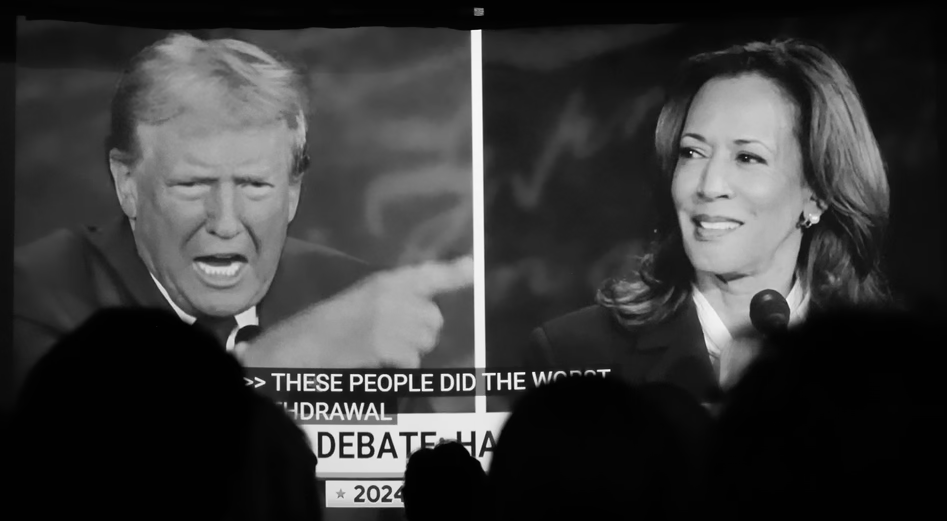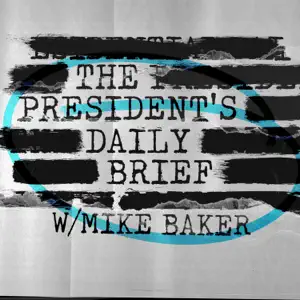We who work in higher education know what DEI officers do: precisely the opposite of their Orwellian slogan. Far from promoting diversity, they strive for uniformity of thought. Far from striving for equity, they frequently proceed with almost no regard for due process. As for inclusion, a primary objective is to exclude right-of-centre academics.
Imperial College London has a guide on its website on “How to be a White ally”, in which students and staff are told that “racial inequality permeates Britain — and the College”, and that they must “understand that you have White privilege”. (One video explains, “It’s not about your intent, it’s about your impact, so when you’re called out make sure you listen, apologise, commit to changing your behaviour and move forward.”) Toxic agitprop such as this explains why Lord Hague of Richmond, at his inauguration as Oxford’s new chancellor, felt obliged to warn of the dangers posed to free speech and diversity of thought. In his words, “The concern of a university is that opinions are reached on the basis of truth, reason and knowledge, which in turn requires thinking and speaking with freedom.”
Far from thinking and speaking with freedom, students at American universities have grown accustomed to the opposite. According to the Foundation for Individual Rights of Expression (Fire), the number of deplatforming attempts at US campuses quadrupled between 2010 and 2017, dipped during the pandemic, and then soared to a new peak of 137 incidents in 2023. Last year there were 193. This explains why last year, according to Fire, 17 per cent of American students said they felt unable express their opinion on a subject on at least two occasions a week because of how students, a professor, or the administration would respond. More than half (54 per cent) said of the Israeli-Palestinian conflict that it was difficult to “have an open and honest conversation about [it] on campus”.
Cancel culture has also made a mockery of tenure, which was supposed to protect academic freedom, as the cases of Carole Hooven, Joshua Katz, Roland Fryer and Kathleen Stock — to name just four of many — illustrate. The most recent example is the law professor Amy Wax, who is currently suing the University of Pennsylvania after it suspended her for a year for making “sweeping, blithe, and derogatory generalisations about groups by race, ethnicity, gender, sexual orientation, and immigration status”.
These problems are not unique to the elite institutions, although it is true that, after October 7, 2023, anti-Israel/pro-Palestinian protests and encampments were more likely to happen at the colleges with the highest fees. According to Heterodox Academy, the problem of self-censorship exists pretty much across the nation at all levels of higher education.
The University of Chicago still enjoys a strong reputation for free speech. But Fire’s survey data reveals that the experience of being on the Chicago campus is not in fact very different from the experience of being on the Harvard campus. At Harvard, 74 per cent of students say they would be “uncomfortable publicly disagreeing with a professor about a controversial political topic”. The percentage at Chicago is 70 per cent. At Harvard, 61 per cent of students would be “uncomfortable expressing [their] views on a controversial topic during an in-class discussion”. At Chicago it’s 57 per cent. Nearly three quarters (73 per cent) of Harvard students would be “uncomfortable expressing an unpopular political opinion to [their] fellow students on a social media account tied to [their] name”. At Chicago it’s exactly three quarters: 75 per cent.
Two fifths (41 per cent) of Harvard students find it “acceptable for students to shout down a speaker to prevent them from speaking on campus”. At Chicago it’s a third of students. Substantial proportions of students at both colleges — 41 per cent at Harvard, 33 per cent at Chicago — believe their university should not allow a speaker who previously expressed the view that “Black Lives Matter is a hate group”. But many fewer — 21 per cent and 13 per cent respectively — think a similar ban should be imposed on a speaker who had previously expressed the view that “structural racism maintains inequality by protecting White privilege”.

At Harvard, where I taught for 12 years, you can see the miserable results of more than ten years of relentless politicisation of the campus. According to an internal report leaked to the Harvard Crimson, “only one third of Harvard’s last graduating class felt comfortable expressing their opinions about controversial topics during their time at the College… a 13 per cent decrease from the Class of 2023”. Small wonder Fire put Harvard dead last in its latest free speech rankings.
“Free speech is dead at Harvard,” wrote one Harvard history student in the Crimson last week. “I doubt it’s returning any time soon.” He’s right. A growing culture of thought policing was one of the reasons I decided to move to Stanford’s Hoover Institution nine years ago. Imagine my disappointment to find that there was even less tolerance for heterodox views there. A series of free speech events I organised ended up being cancelled — and I was very nearly cancelled along with them — as a result of a nasty campaign of smears and protests that culminated in my private emails to sympathetic conservative students being published.
Only four days ago, Larry Summers, the former president of Harvard and former Democratic Treasury secretary, was mobbed and heckled when he attempted to deliver a talk at Stanford Law School. A group of placard-carrying protesters took to the stage and chanted: “Tax the rich!/ Tax the motherf***ing rich!/ Larry, get off it!/ Put people over profit!” (Frankly, I preferred the one they came up with for me and my guest Charles Murray seven years ago: “F*** Steve Bannon/ And f*** the western canon.”) The puerility of these protests tells us a lot about the decline of academic standards that has been an inevitable consequence of DEI policies aimed at elevating other criteria above intellectual merit. Moronic chants and plagiarised essays are two sides of the same debased coin.
UK universities are no different
And if you think British universities are very different, I refer you to the work of Eric Kaufmann, now a professor at the University of Buckingham, where his Centre for Heterodox Social Science is doing first-class work on this and related topics. In particular, his 2021 report, Academic Freedom in Crisis, reveals very similar trends in both British and Canadian universities. My old friend John O’Sullivan’s “first law” states: “All organisations that are not actually right-wing will over time become left-wing.” And so you might have thought the one British institution of higher education safe from the malignant trends I have described would be Buckingham, established on the model of the University of Chicago in 1973 under the auspices of none other than Margaret Thatcher, then education secretary. Thatcher retained a keen interest in Buckingham, speaking at its official inauguration in 1976 — when she praised it as a beacon of private initiative and intellectual independence in a mostly state-funded higher education system — and serving as its second chancellor between 1993 and 1998.
But no. For even at Buckingham the story is not so very different. Last October students and staff were startled to learn from Mark Qualter, the chair of the university’s council, that Professor James Tooley, their vice-chancellor, had been suspended. The official explanation is that it was appropriate for Tooley to be suspended on three hours’ notice and evicted from his university-provided home because of “serious allegations”. These turned out to be largely provided by Tooley’s estranged wife and included possession of a child’s air gun.
The other explanation is that Tooley was being persecuted because of his stated intention to appoint to professorships individuals they thought too conservative: Matt Goodwin, a leading authority on the subject of populist politics, and (here I must declare an interest) my wife, Ayaan Hirsi Ali, whom Tooley had invited to be the inaugural Thatcher professor for the constitution of liberty. (In addition, Tooley had expressed scepticism about the council’s pressure to “embed” DEI in every aspect of university life.)
Thanks to the efforts of Tooley’s lawyers and the Free Speech Union, he has now been cleared of any wrongdoing and reinstated. But those who attempted what amounted to a coup against him remain in their posts. Not content with briefing the media in the spirit of “guilty until proved innocent”, they also appear to have sifted through university email accounts to see if any employees were telling the press the other side of the story.
This illustrates the truth of a second law, formulated by the late historian and Hoover fellow Robert Conquest: “The behaviour of an organisation can best be predicted by assuming it to be controlled by a secret cabal of its enemies.”
Conquest’s Law is the key to understanding events at the University of Buckingham. In what other state of affairs could a man like Mark Qualter exercise this kind of power over a man like James Tooley? The latter is an internationally renowned authority on education, whose work on private schools in the Indian slums revolutionised my own thinking and strongly influenced my 2012 Reith Lectures. Qualter is a former banker whose 18-year career at RBS/NatWest took him from corporate invoice finance to the dizzy height of “head of artificial intelligence, commercial and private banking”. An alumnus of the School of Oriental and African Studies — for years, the most left-wing university in the UK — and a proud vegan, he was, to say the least, a strange choice to chair the governing body of Margaret Thatcher’s university.
Why did institutions go woke?
There are many competing theories as to why universities throughout the Anglosphere succumbed to what Matthew Yglesias cleverly called “The Great Awokening”. There is the theory of the mind virus, developed by scholars such as Gad Saad and enthusiastically embraced by Elon Musk. There is the theory that too much coddling and too much social media produced a generation of snowflakes, arguments Jonathan Haidt and Greg Lukianoff have persuasively made.
But my view is that the crisis in higher education was, at root, the result of disastrously bad governance. In some cases, presidents were too eager to promote progressive politics, forgetting that universities should not be political entities. In others, it was the faculty who decided to hound conservatives out of every department or to fire up the student radicals. And in still others, the DEI thought-police took over. But the common factor has been that boards of trustees have been woefully negligent stewards.

From Harvard to Buckingham, those with the ultimate responsibility have deliberately subverted or ignored the intentions of the founders who established their institutions. And yet, no matter how disastrous the outcomes, it is very rare indeed that a board chair or board member resigns. It is staggering that, after the debacle of the plagiarist Claudine Gay’s brief presidency at Harvard, not one member of the Harvard Corporation — which, after all, appointed her — has stepped down. They, like those responsible for harassing James Tooley, should go. If they had any sense of honour and decency, they would already have gone.
All of this explains why, at the new University of Austin of which I am co-founder, we drew up a constitution with explicit guarantees of academic freedom and — crucially — an independent judicial branch that can ensure that our constitution is upheld.
It is my hope that the trustees of other universities will come to realise the desperate need for governance reform throughout higher education. More has meant worse mainly because the expansion of our universities coincided with a steep deterioration in the quality of oversight. Well, a constitutional solution now exists. You need only copy and paste it. And, as it’s open source, I won’t accuse you of plagiarism.
This column is written by WWSG exclusive thought leader, Niall Ferguson.










